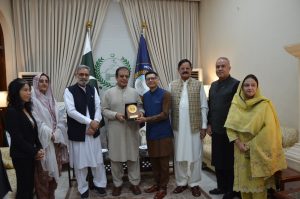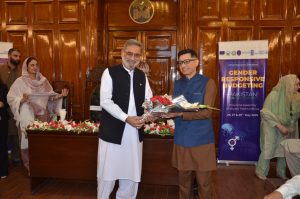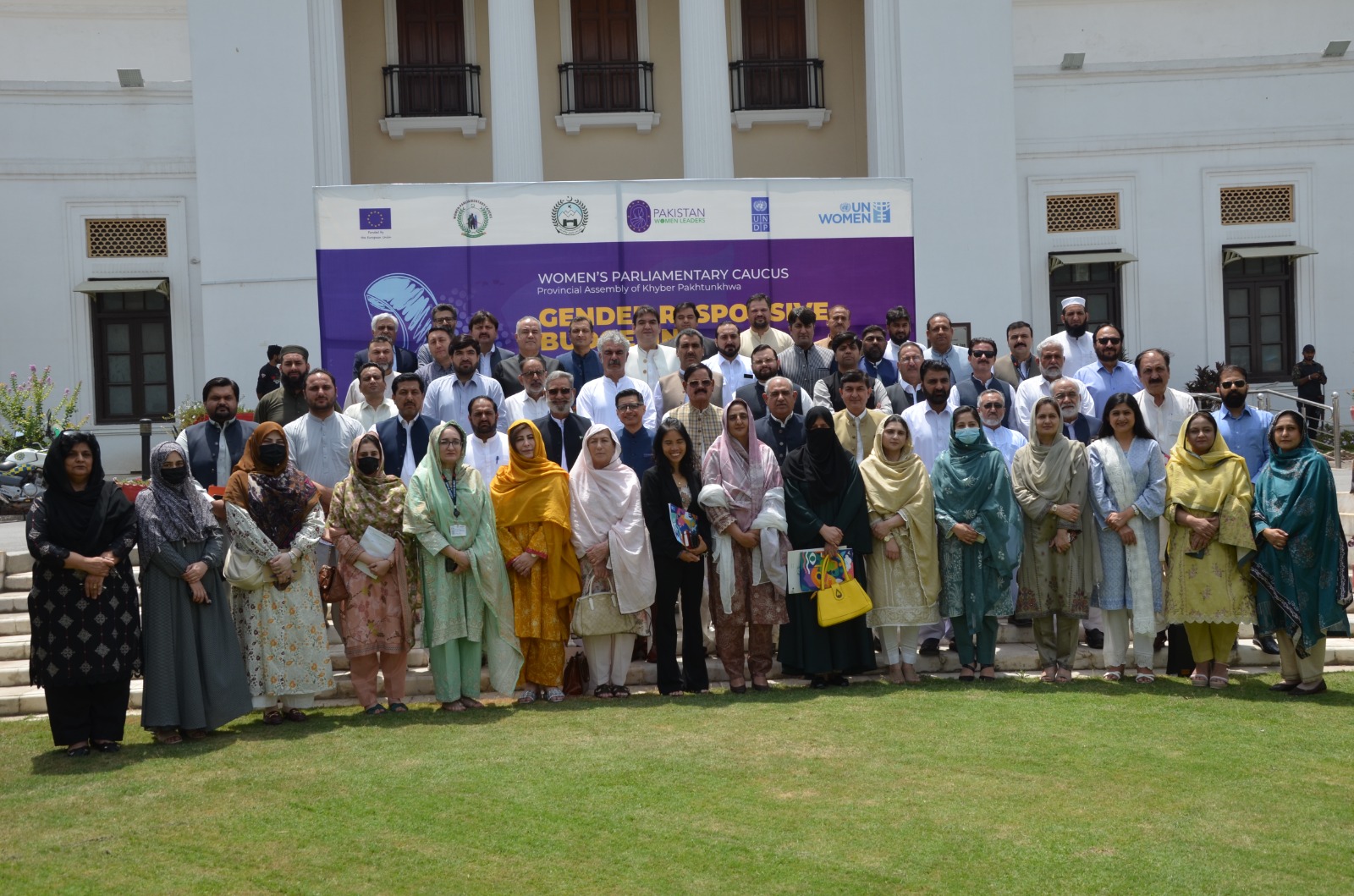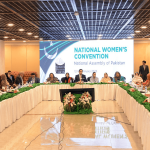Gender Responsive Budgeting Sessions – KP Assembly
A significant three days sessions on “Gender Responsive Budgeting” was organized on 26 – 29 May 2025 at the Khyber Pakhtunkhwa Provincial Assembly, in partnership with UN Women and UNDP. Chaired by Mr. Sher Ali Afridi, a senior member of the assembly, on behalf of the Deputy Speaker, the event brought together a select group of 25 participants. This included 11 Members of the Provincial Assembly, among whom were two women MPAs, as well as staff from the KP Assembly. The Convener of the SDGs Taskforce also contributed to this important initiative. The session was thoughtfully structured into three main segments: understanding the budget cycle, led by the Finance Department; annual development planning, presented by the Planning and Development Department; and gender-sensitive budgeting, conducted by a technical expert from UN Women. Throughout the event, participants—especially the provincial assembly members—actively engaged by asking questions and exchanging ideas, which led to a lively and informative discussion. The session was highly successful in raising awareness about the importance of integrating gender perspectives into budgetary and planning processes, and it highlighted the commitment of Khyber Pakhtunkhwa’s legislative and administrative bodies to advancing gender equality and inclusive development. This initiative has laid the groundwork for more gender-responsive policies and practices within the provincial government.
The Members of the Provincial Assembly (MPAs) recommended that clear guidelines should be developed specifically for Gender Responsive Planning and Budgeting (GRPB) within the Khyber Pakhtunkhwa Assembly. They also suggested creating a practical action plan to guide the Assembly’s ongoing engagement with the Planning & Development and Finance Departments at every key stage of the budget and planning cycle.
Additionally, the MPAs requested a Gender Analysis of the upcoming provincial budget. They asked that UN Women support them by involving MPAs directly in the process—especially when the Budget Strategy Paper is being developed and when the official Budget Circulars are released. This way, the MPAs can better understand and influence how gender considerations are integrated into the province’s financial planning.
This could be presented in a simple booklet format, making the information easy to understand and follow for all involved.







